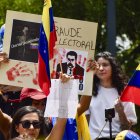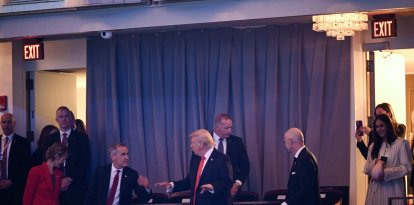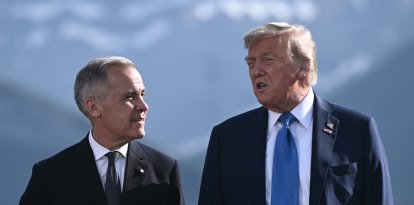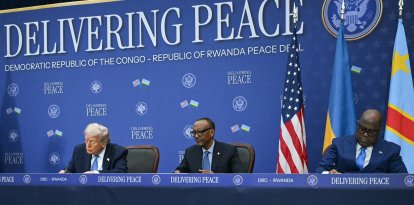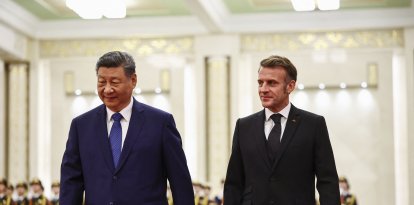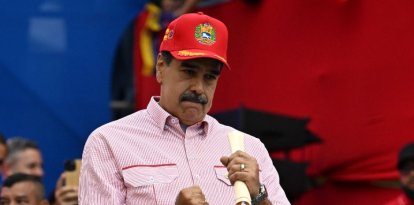A rector of the Venezuelan CNE confirms the lack of transparency and veracity in the July 28 elections
"Everything that happened before, during and after the presidential election, point to the seriousness of the lack of transparency and veracity of the announced results," said Juan Carlos Delpino Boscán, a member of the chavista-controlled National Electoral Council.

CNE Rectors
Juan Carlos Delpino Boscán, one of the main rectors of the National Electoral Council (CNE), was not present at the July 28 press conference in which the organization (controlled by chavismo) announced Nicolás Maduro as the winner of the elections. Since that day, Delpino has been silent until this Monday, when he published a statement in which he confirmed that there were irregularities in the electoral process.
"Everything that happened before, during and after the presidential election, point to the seriousness of the lack of transparency and veracity of the announced results," he wrote in the statement, published almost a month after the polls.
Delpino explained that the electoral process developed, initially, with few incidents. However, it suffered serious problems after the closing of the polling stations.
"After the closing of the voting booths, a breach of essential rules and regulations was evidenced. When incidents of eviction of opposition witnesses during the closing of booths were reported, which constituted a direct violation of the principles of fairness and non-observance of the voters' rights to have access to the voting records, compromising the legitimacy of the process in those voting centers," Delpino assured.
The Rector indicated that the transmission of results was to be made immediately after the closing of the polling stations. But in that time he did not receive any information until 9:00pm when he was informed of an alleged hacking.
"This event allegedly prevented the issuance of the first bulletin at the right time and keeping the country in an unjustified wait. Faced with the eviction of witnesses in quite a few centers, the lack of transmission of the QR code to the data centers of the commands, and the lack of effective solution to the alleged hacking, I made the decision not to go up to the finalization room and not to attend the announcement of the first bulletin. As principal rector, by not going up to the finalization room, I lack the evidence to support the announced results," he said.
"I deeply regret that the result and its recognition do not serve all Venezuelans, that it does not settle our differences and does not promote national unity and instead underlies doubt in the majority of Venezuelans and in the international community about the results," he added.
Delpino, moreover, gave an interview to The New York Times in which he insisted that he received no evidence to sustain that Nicolás Maduro won the elections. "Speaking in an interview with a reporter for the first time since the vote, Delpino said 'I did not receive any evidence' that Maduro had gotten a majority of the votes," The New York Times reviewed.
Delpino's statements come in a context in which the opposition claims it won the elections with more than 60% of the votes and that the Maduro regime have stolen the victory from them, calling the fact a fraud.

Mundo
La líder opositora Machado llama a los venezolanos "a la calle" el próximo 28 de agosto
Emmanuel Alejandro Rondón
The complaint about the lack of transparency in the results has been supported even by international organizations such as the UN Fact-Finding Mission on Venezuela which detailed that neither the Supreme Court of Justice nor the National Electoral Council are independent or impartial institutions. The Carter Center also assured that these elections cannot be considered democratic.
">El Tribunal Supremo de Justicia de #Venezuela requerido para auditar los resultados electorales anunciados por el Consejo Nacional Electoral.
— United Nations Human Rights Council (@UN_HRC) August 22, 2024
La Misión de Determinación de los Hechos sobre este país alerta sobre la falta de independencia e imparcialidad de ambas instituciones. pic.twitter.com/IzKRG9bVUq





